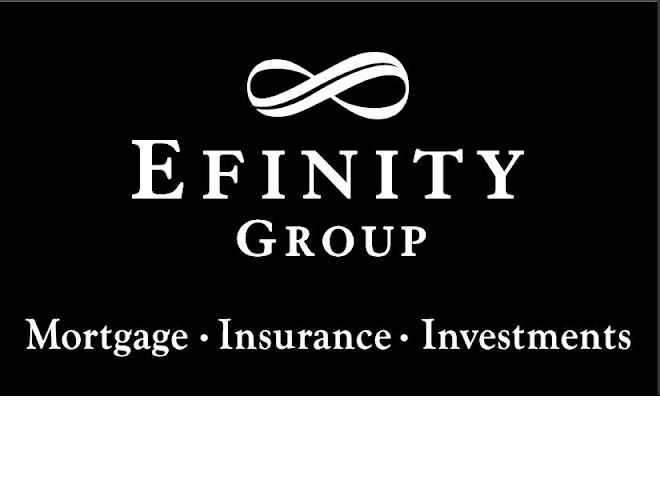Wonderful! Congrats on the decision. We have pulled together some helpful tips to get you started. These go pretty much in order, as most in the real estate industry will tell you it is important to stick with this road map to save yourself and others much anxiety.
How Much House Can You Afford?
Buying a new house is a big investment. You want to be sure that you have all the right finances before proceeding. Spend the time to do a serious audit of your finances and determine a budget. Use an Affordability Calculator to estimate how much you can afford on a house based on your income, savings, debt and assets. Any of Efinity's licensed mortgage professionals can also help with this. Check your credit score. Every year you are allowed one free copy of your credit report.
Get Preapproved For Mortgage
Now that you’ve checked your finances, it is time to see what kind of mortgages you qualify for. Many buyers make the mistake of assuming that being prequalified and preapproved for a mortgage are the same. They are NOT. At Efinity Mortgage at time of application we press deeply into your financial situation and certainly through the application process, an extensive financial background check and a current credit score report.
Find the Right Realtor
A realtor or real estate agent is another great person to have as you maneuver the home buying process. They have the in-depth knowledge on home buying and help you negotiate the purchase. This service is free for the buyer because the realtor is compensated by the seller. You can search online for a realtor at Realtor, Zillow, Trulia. Efinity Mortgage also works with a large number of realtors throughout our network.
Find a Home
You’re finally at the step you’ve been waiting for. Be sure to create a checklist of items you need and want in your future home. This will narrow down the endless choices of homes and help you focus on only the right ones. Also, make a list of your neighborhood preferences like safety, commute, type of schools, local shopping and grocery.
Get a Home Inspection
The home inspection is a step that many home buyers tend to skip over but this is a very important step once you’ve found a home you like. A home inspection checks for any damages to the home’s structure or foundation as well as any major or minor fix-ups that need to be done. Once a thorough home inspection is completed the buyer and seller will receive a report from the home inspector.
Make An Offer
Make an offer with the help of your realtor and don’t be afraid to negotiate price. This may take longer than you think but always be ready if the seller says yes.
Close the Sale
Before you close review all the costs associated with both the purchase and the expected monthly payments. No matter how much time and effort we put forth, it is still amazing to us how often clients gloss over these things. Spend the time and know what you are buying.
Monday, June 20, 2016
Thursday, June 2, 2016
When Bill Gross Speaks; We Listen
There are a small group of individuals who speak and grab our collective attention. Bill Gross is one of those individuals. Earlier today he was on CNBC and made some interesting comments. CNBC.com was kind enough to summarize that interview and we wanted to pass it along for our collective audience. Bill Gross: Get ready for an 'entirely different' market CNBC Reporter; Jacob Pramuk | @jacobpramuk Bill Gross has some bad news for investors. In his June investment outlook released Thursday, the widely followed bond fund manager contended that bond and stock returns realized in the last 40 years are "a grey if not black swan event that cannot be repeated." Investors should not expect 7 percent returns on bonds or returns in the high single digits or double digits on stocks, Gross told CNBC on Thursday. "The markets are entirely different and it would pay to travel to Mars as opposed to stay on Earth, because the returns here are very, very low," the manager of the Janus Capital Unconstrained Bond Fund, said on CNBC's "Power Lunch". Gross said easy central bank policy could hold down bond returns. Central banks in Europe and Japan have adopted negative interest rates, while the U.S. Federal Reserve's target rate is at 0.25 to 0.50 percent. German and Japanese 10-year bonds currently have negative yields, while their 30-year bonds yield less than 1 percent. The U.S. 10-year Treasury note yield sat around 1.8 percent Thursday. Gross contended those rate trends can hurt not only savers but also the broader economy. He said Fed policymakers, who have signaled they could hike rates at least once this year, realize they need to normalize policy. "Ultimately, they have to move back up and I think a certain number of Fed governors realize that the normalization process is necessary in order to save business models and to save capitalism basically because capitalism doesn't work at 0 percent and it doesn't work at negative interest rates," he said. Gross added that investors should "basically go the other way" by holding liquid cash. He said they should not buy corporate bonds and resist buying high-yield bonds or riskier stocks. Over the last 24 months, Efinity Financial has been a long proponent reducing market exposure. It's wonderful to see one of Wall Street's leading minds summarize some of the challenges in a direct and straight forward way.
Subscribe to:
Comments (Atom)
